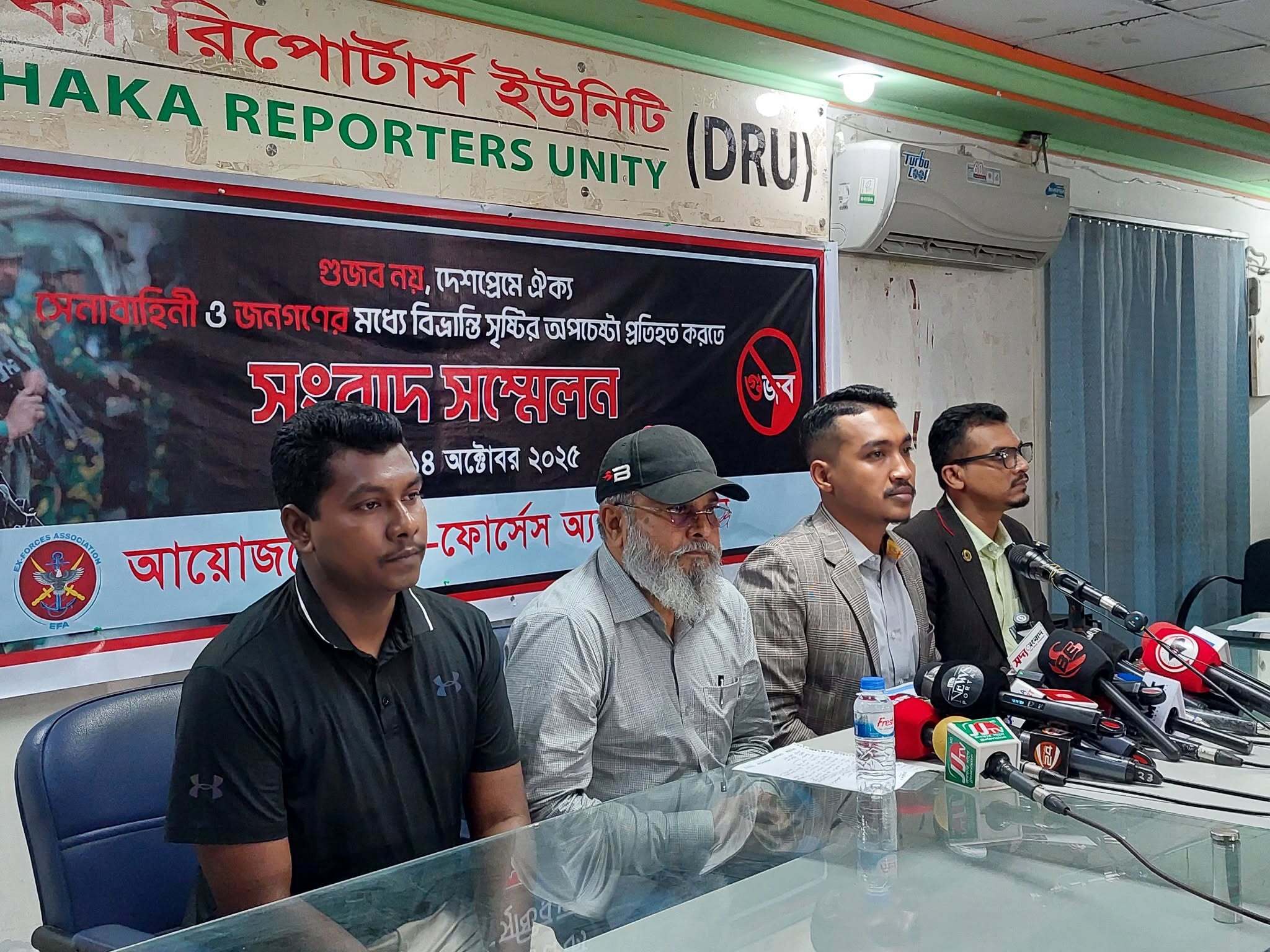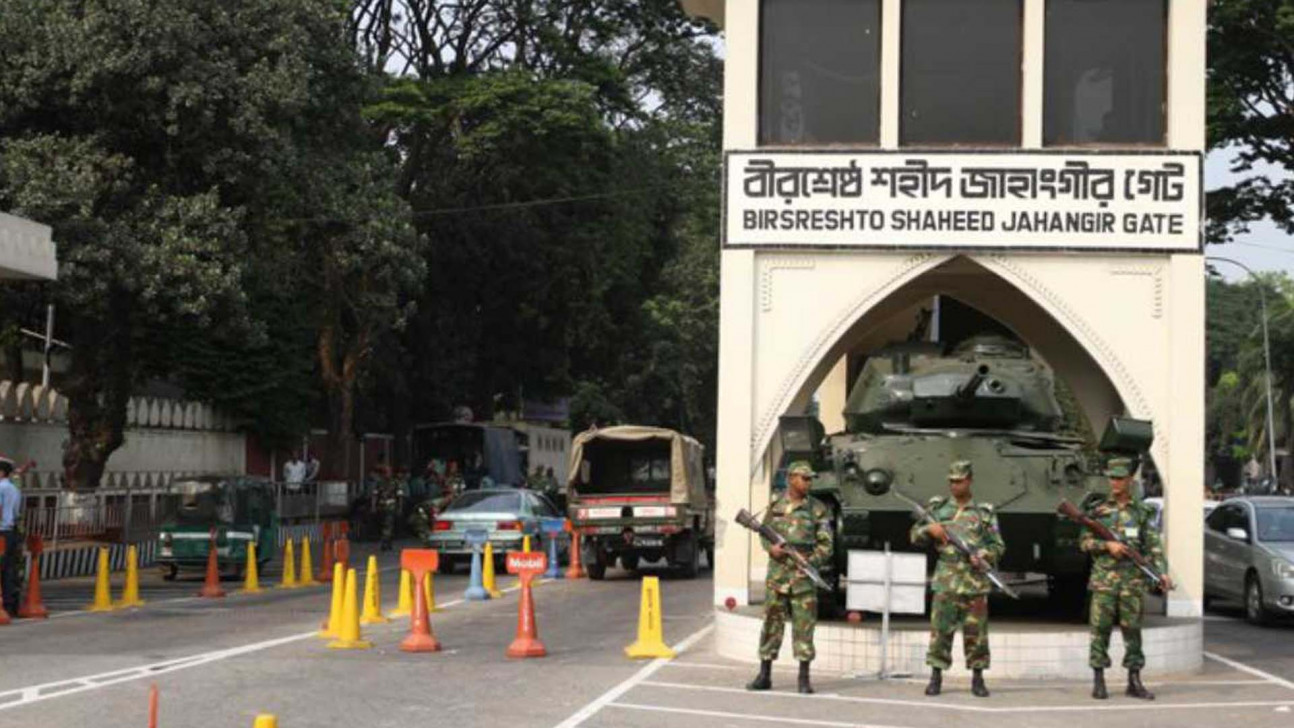TIB questions govt decision to keep accused army officers in Dhaka Cantonment

Transparency International Bangladesh (TIB) has raised concern over the government's decision to keep military officers, accused by the International Crimes Tribunal -- of enforced disappearances, extrajudicial killings, and torture during the fallen authoritarian regime -- in military custody within Cantonment area.
This decision is questionable in light of constitutional commitments and the principle of equal application of the law, the anti-graft watchdog said in a statement today.
TIB called on the government to clarify the rationale and considerations behind the decision to treat military officers accused of crimes against humanity differently from other accused persons.
Emphasising the fundamental principle that "all are equal before the law", the organisation has strongly urged the government to immediately withdraw this discriminatory decision.
In the statement, TIB Executive Director Iftekharuzzaman said, "How can discrimination based on identity or position be acceptable in cases involving the same allegations? In the trial process of individuals accused of crimes against humanity, there is no scope to consider professional identity or rank."
He added, "Granting or assessing anyone with special privileges in this way goes against the principle of justice. If other accused persons can be held in civilian custody under regular procedures, what is the justification for establishing specialised sub-jails for accused military officers?
The statement also questioned, "Will the government then offer as many types of sub-jails as there are professional or institutional identities among the accused from state and non-state sectors?"
"This discriminatory behaviour by the government will call into question the judicial process of the International Crimes Tribunal, creating the risk of public confusion regarding the government's intentions, particularly among victims and their families.
Effective measures must be taken to ensure that there is no scope for even the slightest doubt about the impartiality and transparency of the trial process."
Iftekharuzzaman further said, "According to Article 27 of the Constitution of Bangladesh, which guarantees 'equality before the law,' and under the basic principles of relevant international law, no person accused of crimes against humanity is entitled to any special privilege -- this applies equally to members of the armed forces."
Referring to the example of a former military officer accused of crimes against humanity, Dr. Iftekharuzzaman said, "In some cases, the army arrested the accused at the airport and handed them over to the police, which we consider a positive precedent. That individual is currently detained under civilian control.
"Therefore, why are other accused military officers required to remain in military custody? The military authorities and the government must provide an explanation," reads the statement.
TIB also said, "All parties involved must ensure that accountability for crimes against humanity, such as enforced disappearances, killings, and torture, is secured in accordance with constitutional commitments and internationally recognised procedures."
"The opportunity for exemplary justice, achieved through immense sacrifice, must not be undermined by discriminatory behaviour that grants special privileges to a particular group," the TIB ED added.



 For all latest news, follow The Daily Star's Google News channel.
For all latest news, follow The Daily Star's Google News channel. 

Comments